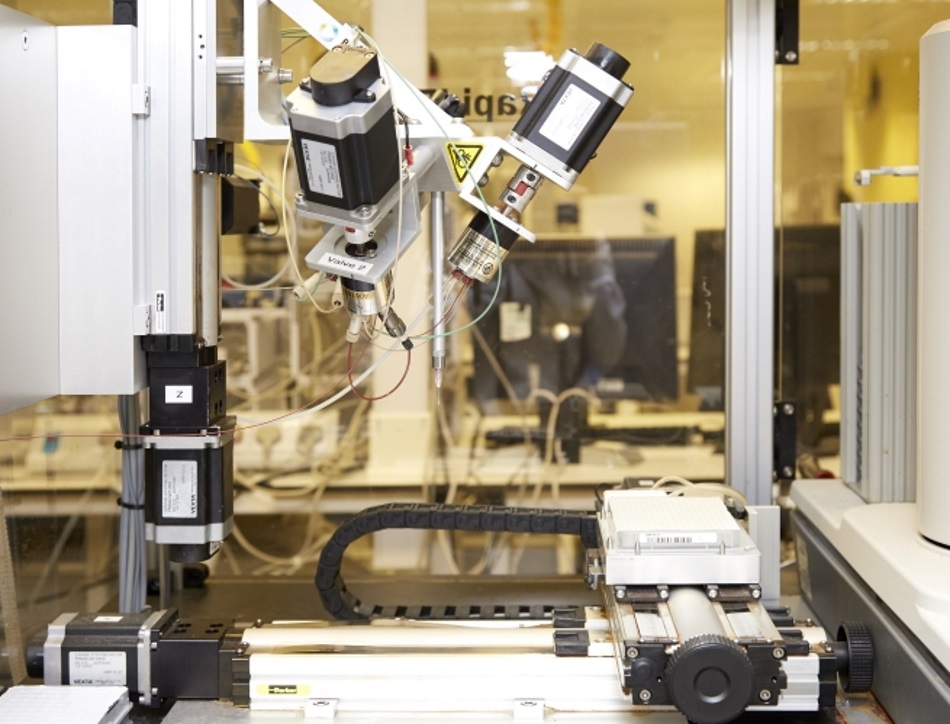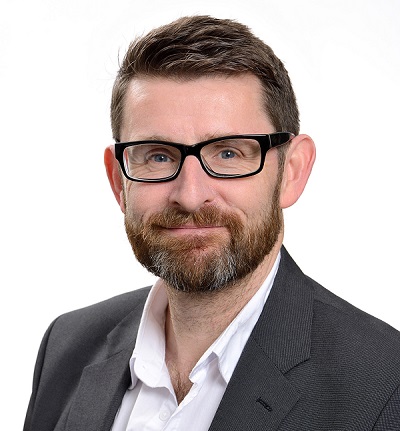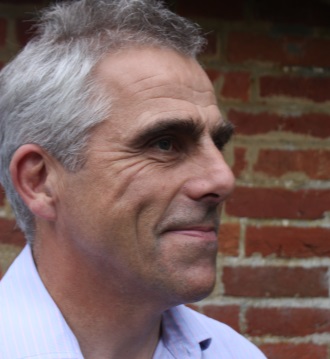Links to external sources may no longer work as intended. The content may not represent the latest thinking in this area or the Society’s current position on the topic.
Royal Society Industry College networking event

A networking meeting organised by the Royal Society Industry College. The program focuses on introducing new members of the college through presentations, tours, discussions and networking.
Located at GSK within the Stevenage Bioscience Campus, delegates will have the opportunity to make new contacts, contribute to discussions on getting the most out of their collaborations and projects, learn about the site, and meet the scientists working there.
Attending this event
As well as new and current Industry Fellows and Entrepreneurs in Residence, there will be a limited numbers of places at this event for others interested in the relationship between industry and academia.
If you would like to attend, please email industry@royalsociety.org with a short explanation as to why you are interested in the event. As places are limited, we cannot guarantee that there will be spaces available.
Organisers
Schedule

Professor Joe Sweeney, University of Salford

Professor Joe Sweeney, University of SalfordProfessor Joe Sweeney was awarded a BSc in Chemistry and elected an Associate of the Royal College of Science at Imperial College, and carried out a PhD studying synthetic uses of aziridines and allylstannanes at the University of Oxford. In 1990, Joe was appointed as Lecturer in Chemistry at the University of Bristol where he developed research projects focused on new methods for preparation and use of polyhydroxylated ring structures, aziridines and metalled furanones, and the total synthesis of several naturally-occurring lactones. He then moved to a Readership in Organic Chemistry at the University of Reading. In 2007, Joe was awarded the inaugural Faculty Output Prize at the University of Reading for his group's publication on asymmetric rearrangements, and became Professor of Synthesis and Chemical Biology. In 2008, Joe was awarded a Royal Society Industry Fellowship with AstraZeneca, which was later extended. Joe is now Dean for the School of Science, Engineering and Environment at the University of Salford. |
|
Find out about the breadth of activities going on at the Stevenage Bioscience Campus. You will hear talks from representatives from Cell and Gene Therapy Catapult, LifeArc, GSK and the Stevenage Bioscience Catalyst. 
Dr Sally Ann Forsyth, Stevenage Bioscience Catalyst, UK

Dr Sally Ann Forsyth, Stevenage Bioscience Catalyst, UKSally Ann was appointed as Chief Executive Office of Stevenage Bioscience Catalyst (SBC) in March 2018 to lead it through its next phase of expansion. Prior to taking up her role at SBC, Dr Forsyth was the Director of Harwell Oxford (owned by STFC), Colworth Science Park (owned by Unilever) and CEO for Norwich Research Park and was responsible for leading their transformation from national research centres to leading science parks. Sally Ann began her career as a management trainee with Unilever holding a range of roles across technology licensing, venture capital and strategic alliance management. She has a PhD in Molecular Biology from the University of Cambridge and is a qualified Chartered Global Management Accountant. 
Dr Mike Hann, Senior Fellow and Director of Scientific Engagement & Innovation in NCE-Molecular Discovery, GSK

Dr Mike Hann, Senior Fellow and Director of Scientific Engagement & Innovation in NCE-Molecular Discovery, GSKMike Hann is Director of Scientific Engagement & Innovation in the NCE Molecular Discovery at GSK's R&D hub at Stevenage. He is a GSK Senior Fellow and an Adjunct Professor at Imperial College chemistry department developing links of mutual benefit to GSK and IC. His role is to act as an internal science consultant, promoting and challenging new ideas at the interface of chemistry and biology both within GSK and through external engagement with academia. Previously, Mike was a Director in Chemical Sciences at GSK in the UK responsible for leading departments involved in computational chemistry, protein crystallography, biophysics and protein mass spectrometry. 
Dr Sharon Brownlow, Head of Collaborations, The Cell and Gene Therapy Catapult, UK

Dr Sharon Brownlow, Head of Collaborations, The Cell and Gene Therapy Catapult, UKMy PhD in protein crystallography has been followed by over 30 years' experience in up and downstream biologics processing, working in technical and commercial roles including at leading equipment and consumables suppliers plus a gene therapy CMO. I joined The Cell Therapy Catapult two years ago, where I am responsible for establishing and maintaining collaborations with academia plus therapy and technology developers worldwide. I am also working to strengthen the cell and gene therapy cluster at Stevenage and in the UK in general, through attracting inward investment and establishing an effective local ecosystem. 
Dr Justin Bryans, Executive Director of Drug Discovery, LifeArc, UK

Dr Justin Bryans, Executive Director of Drug Discovery, LifeArc, UKJustin Bryans is Executive Director, Drug Discovery at LifeArc. He trained at the universities of York and Oxford and has since worked as a medicinal chemist for over 25 years in Biotech and Pharma, including Parke-Davis and Pfizer, delivering a number of clinical candidates. He joined LifeArc in 2005 where he currently leads the drug discovery team collaborating with academics on cutting edge science to deliver proof of concept and develop small molecule and antibody based leads and potential drugs for diseases of high unmet need. Justin teaches on drug discovery at Queen Mary University of London, University College London and the Wellcome Trust. He also sits on the Drug Discovery Committee for Cancer Research UK. |

Professor Michael Banissy, Goldsmiths University of London, UK

Professor Michael Banissy, Goldsmiths University of London, UKMichael is a Professor of Psychology at Goldsmiths, where he is Co-Head of Department. He is also a Royal Society Short Industry Fellow working with OPIÑON. He has contributed to several diverse research areas, including social perception, social cognition, creativity, synaesthesia, and brain stimulation. The breadth of his work is not only seen in scientific contributions, but also in his engagement to bring science to the public and industry. His work in these domains resulted in him being awarded the British Psychological Society Spearman Medal (2016), and the Bertelson Award (2017) for outstanding contributions to psychological research. 
Dr Robert Barker, University of Kent, UK

Dr Robert Barker, University of Kent, UK
Professor Martin Warren, University of Kent, UK

Professor Martin Warren, University of Kent, UKMartin Warren is Professor of Biochemistry at the University of Kent. His research is focused on the design and redesign of metabolic processes, applying multidisciplinary approaches in order to understand the chemical logic underpinning them. His work has led to the elucidation pathways for modified tetrapyrrole biogenesis such as those for haem, coenzyme F430 and vitamin B12. Subsequently, he has used this knowledge to make variants of the vitamin to follow the trafficking of this essential nutrient. He has also been a pioneer in the study of bacterial microcompartments, proteinaceous supramolecular vesicles that can be redesigned to incorporate new processes. 
Dr Justin Burrows, Rolls-Royce Group plc

Dr Justin Burrows, Rolls-Royce Group plcJustin Burrows is currently Project Manager – Universities for Rolls-Royce plc. He manages metallic systems research within the UK academic network along with recruitment for the materials function. Prior to this he has held global roles in Manufacturing Technology, Repair and Overhaul and Turbine Systems. Justin has been active in several development areas including mechanical processing, high speed grinding, joining and localised repair of critical rotating components including disks and aerofoils. His research interest is the metallurgical responses of alloys as a result of fusion and solidification processes including additive manufacturing techniques. |

Professor Ursula Gompels, London School of Health and Tropical Medicine, UK

Professor Ursula Gompels, London School of Health and Tropical Medicine, UKUrsula Gompels studies virology, molecular cell biology, and genomics. She has a PhD from the University of Cambridge, and then became Professor in Molecular Virology at the London School of Hygiene and Tropical Medicine, University of London. She has published over 60 papers and serves on the International Committee on Taxonomy of Viruses, and the WHO regulatory committee on nucleic acid vaccines. She held previous Wellcome Trust Senior (Cambridge) and Royal Society Industry (GSK) Fellowships, and was recently awarded an MA in Management (London). She is an inventor on 3 patents, and is currently developing a start-up for novel immunotherapeutics and gene delivery in advanced therapies. |

Dr Ceri Batchelder, Connect&Create, Entrepreneur in Residence at the University of Sheffield, UK

Dr Ceri Batchelder, Connect&Create, Entrepreneur in Residence at the University of Sheffield, UKCeri's consultancy business delivers innovation projects between the digital community and other business sectors. Currently she is developing partnerships for IoT Tribe, an accelerator for technology start-ups and promoting adoption of digital technologies by manufacturers in the Sheffield City Region. Previously, Ceri was Business Development Director at HMA Digital Marketing, a creative and digital agency. Here she grew the company's science and healthcare focus, bringing in multiple new clients and setting up partnerships to develop mobile healthcare apps. Trained as a PhD molecular biologist at the John Innes Centre, Ceri held postdoctoral fellowships at Harvard University. She has used her science background in a number of commercial roles and gained an MBA from Manchester Business School. 
James Otter, Founder of CommLit.Online, Ellipson, and former Entrepreneur in Residence

James Otter, Founder of CommLit.Online, Ellipson, and former Entrepreneur in ResidenceJames was one of the RS EIRs at the University of Southampton from 2018 to 2021. He was sponsored by the University of Southampton’s Institute for Life Sciences. During this time he mentored a range of start-ups and started the commercial literacy course, which gives academic entrepreneurs a grounding in business issues. Over the last 20 years he has led a range of turnarounds of technology companies in a range of sectors including genomics, drug delivery, health IT, nanotechnology, veterinary MRI and sound and vibration instrumentation. He has chaired or been an NED on Octopus Venture Capital Trusts since 2004. His earlier corporate career was with Zeneca Agrochemicals (now Syngenta) where he held a range of international commercial management positions, and before Zeneca he worked with aid organisations in the field in Nepal and the Sahel. James has a degree in Natural Sciences from Cambridge and an MBA from INSEAD. 
Dr Christopher Finnis, Finnis UK Ltd, Entrepreneur in Residence at the University of Leicester, UK

Dr Christopher Finnis, Finnis UK Ltd, Entrepreneur in Residence at the University of Leicester, UKChris has spent 25 years engineering yeast strains for biopharmaceutical manufacturing. After a Biotechnology BSc and Biochemical Engineering MSc he joined ICI Pharmaceuticals, before moving to Delta Biotechnology in Nottingham, where he co-developed S.cerevisiae strains for the animal‑free production of recombinant albumin (used in Merck's childhood MMR®II vaccine), albumin fusion proteins (such as albiglutide made by GSK for type-2 diabetes) and the world's first cGMP process for recombinant transferrin. After a PhD in microbial genetics at the University of Nottingham he led Novozymes Biopharma's Molecular Biology Department and Global Biopharma Innovation Group, before becoming an Honorary Fellow at the University of Leicester and founding Phenotypeca, to develop next-generation yeast systems for biologics manufacturing. |
|
Join for a tour of the laboratories at GSK Stevenage and learn about GSK’s facilities for research and development into different medicine modalities including small molecule, biopharmaceutical, and cell and gene therapeutics. |
